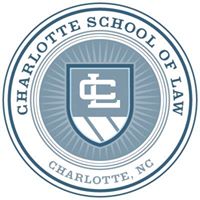Still no federal loans for Charlotte School of Law students; state AG opens civil investigation

Despite reported assurances to the contrary, Charlotte School of Law students say they have received no federal loan money for the spring 2017 semester. Meanwhile, the North Carolina attorney general’s office is investigating the troubled school under the state’s civil consumer protection laws.
The for-profit law school has told students that if the federal money does not come through, it will be offering institutional loans, says Matt Blevins, a 3L who is scheduled to graduate in 16 days.
“In January, they said they were pretty sure we’d get money from the Department of Education,” he told the ABA Journal. According to Blevins, there have been rumors that if the federal money does not materialize for those graduating in May and they opt not to take the institutional loan, Charlotte School of Law may withhold their diplomas.
Many law schools have methods to make emergency loans to students, and universities generally require that students take care of unpaid fees before issuing a diploma, says Barry Currier, the ABA’s managing director of accreditation and legal education.
“That said, should a matter related to loans to students or the withholding of diplomas come to the accreditation committee or the council, it would be up to those bodies to evaluate the facts in light of the standards and determine whether a standards violation has taken place,” he wrote in an email to the ABA Journal.
The U.S. Department of Education announced that it was pulling the school’s federal loan money in December, after it was placed on probation by the American Bar Association. The Department of Education found that the law school made “substantial misrepresentations” to current and prospective students regarding its compliance with ABA accreditation standards.
Since then, the law school has made various statements that the funds would be released, including to the ABA Section of Legal Education and Admissions to the Bar. In March the section announced that a proposed teach-out agreement for the law school was deferred. That followed the school sharing a letter from the Department of Education, “which appears to provide a pathway for the law school to continue to have access to ‘second or subsequent…federal loan disbursements’ for certain of the law school’s students,” Currier wrote in a March 27 letter (PDF) to the law school.
Charlotte School of Law did not respond to an interview request from the ABA Journal. Nor did Jay Conison, CSL’s former dean, who according to school spokesperson shared the Department of Education letter with the ABA.
In an investigative demand (PDF) from North Carolina attorney general’s office dated March 10, the agency sought from Charlotte School of Law all documents that addressed “alternative financing” for CSL students, as well as documents that explained any plan to credit the students for federal funds, including what the plan was if the school’s Title IV eligibility was not reinstated.
In April, the the North Carolina attorney general’s office wrote to U.S. Department of Education Secretary Betsy DeVos, expressing concern about Charlotte School of Law and federal rules regarding deadlines for student loan discharge. Under the federal rules, students eligible for loan forgiveness must withdraw no more than 120 days before a school closes, according to the letter (PDF).
“CSL’s actions, including its repeated mixed signals, have created an extremely difficult dilemma for students,” the letter reads. It suggests that setting a date for the 120-day deadline should be no sooner than Feb. 3, 2017, and asserts that special circumstances exist to extend the time period.
Most CSL students have already left, the school has fired more than half of its faculty and the school’s landlord reports that it’s willing to sublet all of its classroom space, according to the letter. It also noted that on average, individual law school loan debt among Charlotte School of Law students is $161,910.
“If CSL closes in Summer 2017 due to poor financial health, CSL’s investors and officers would be free to walk away; at worst, they would have lost the value of their investment,” the communication reads. “CSL’s students, on the other hand, would be left with debt they cannot discharge, incurred for a legal education of diminished value, which in many cases will not lead to their obtaining the professional qualification they sought at the outset of their studies.”
Chidi Ogene, president of Charlotte School of Law, sent a response to the Department of Education on April 14. He described the state attorney general’s request as “premature and improper,” because the law school still has ABA accreditation, and is serving 220 students.
The law school’s application for reinstatement of federal student aid was submitted March 29 at the suggestion of the department’s acting general counsel, according to Ogene’s letter (PDF).
“Unfortunately, the department has not yet acted on our application. We urgently ask you to give its processing all possible priority,” wrote Ogene, whose communication included two proposals. One was that CSL’s loan eligibility be reinstated on a month-to-month basis.
“Second, if the department subsequently declines to issue CSL a Program Participation Agreement for a certain term, CSL is committed to an orderly teach‐out process during which students would utilize Title IV funds to pay for their remaining education. We believe that is in the best interest of our students, including those students who made decisions during the confusion created by the denial letter,” Ogene’s communication reads.



